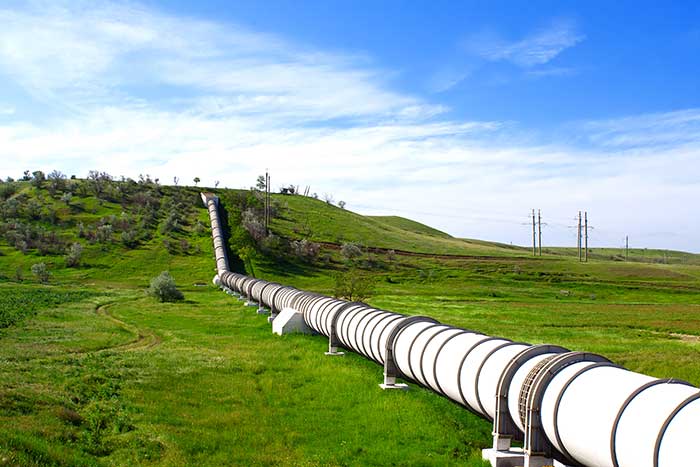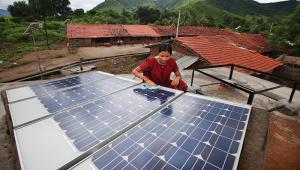web_gaspipe_shutterstock_79616923.jpg

Gas pipeline
The $10bn TAPI pipeline will also travel through Afghanistan and Pakistan on the way, giving it its name. While already under construction in Turkmenistan, financing and security uncertainties have cast doubt on how the project will get off the ground.
The initial $200m will fund preliminary activities, such as route surveys and environmental and social safeguards, which it is hoped will pave the way for construction to begin elsewhere.
It will come from the shareholders of the TAPI Pipeline Company, set up to build, own and operate the pipeline.
The majority stake is held by Turkmenistan’s state-owned Turkmengaz , with Pakistan, India and Afghanistan’s state-owned energy companies, Interstate Gas System, GAIL and Afghan Gas Enterprise, holding the remainder.
It is unspecified how much financing will be contributed by each country.
Sean O’Sullivan of the Asian Development Bank, which has provided secretariat services for the TAPI project since 2003, said the financial commitments are testament to the shareholders’ intention to get “this historic project off the ground and running”.
Once complete, it will promote regional cooperation and integration, unlock economic opportunities, transform infrastructure and enhance energy security for the region, he said.
In Pakistan, where spiralling demand and inefficiency have lead to a major energy crisis, the pipeline will herald much-needed extra capacity. Jam Kamal Khan, minister of state in the country’s Ministry of Petroleum and Natural Resources, welcomed the signing of the investment agreement.
“TAPI will bring in 13.8 billion cubic metres of gas from Turkmenistan to meet Pakistan’s growing energy demand. It will boost the country’s energy security, bring economic benefits to our people through job opportunities, and provide and upgrade associated infrastructure.”
Energy-hungry India sees it as a chance to secure a more sustainable, long-term power source, while Afghanistan sees the project as a harbinger of regional peace, stability, and hopefully, greater confidence among investors who could inject some much needed cash into the war-torn country.
For Turkmenistan, a country sitting on the world’s fourth-largest gas reserves, the project means diversification of its economy, growth and reduced dependence on China and Russia.
But the project has been plagued by budgetary concerns and security hurdles, meaning that while a number of initial agreements were signed as early as 2010, TAPI has until recently been a non-starter.
From militant groups in Afghanistan and Pakistan to the long-standing geopolitical rivalry between Pakistan and India, multiple challenges have stalled the project so far, and the continued insecurity in Afghanistan leaves many uncertain about how the project could go forward even if it secured the necessary funding.
Some commentators believe TAPI is unlikely to secure outside investment, especially with Afghanistan so unstable.
While a number of major international energy corporations are reported to have toyed with the idea of building the pipeline during the ADB’s initial feasibility studies, none of this interest bore fruit.
Mobil, Chevron, Total SA and Exxon are said to have backed out after discovering Turkmenistan law does not allow foreign ownership of gas fields.
Others are slated to be partnering on the project, but there is little clarity, and while the four TPC shareholders have gathered the cash for this initial work, none have the capacity to fund the mega project in its entirety. Some are even reported to have back up plans on the table.
The ADB said yesterday construction of the pipeline, which will have a 30-year lifespan, is estimated to take up to three years. With any delays likely to prove even more costly, those involved are coming under increasing pressure to ensure the pipeline is more than just a pipedream.













